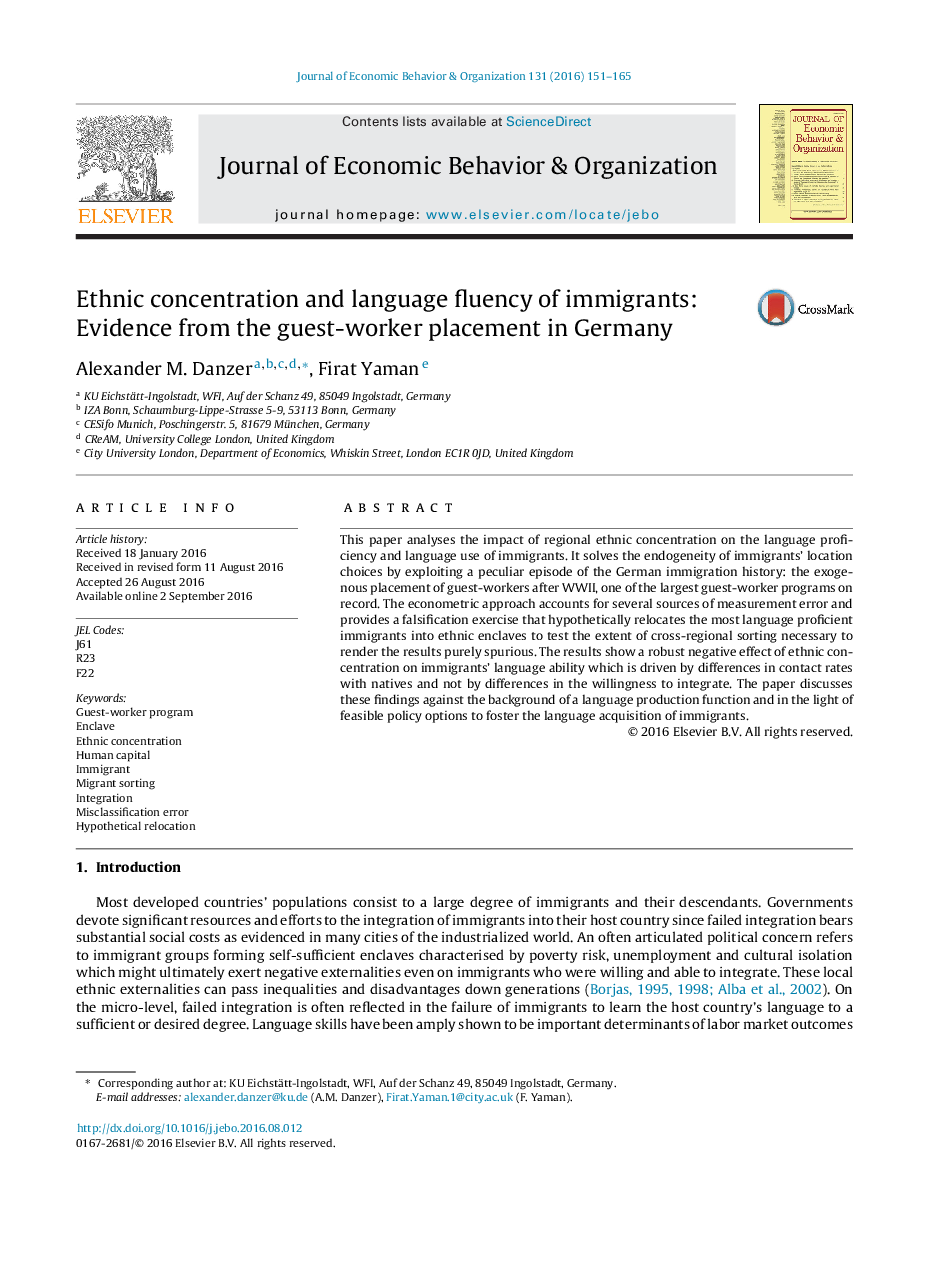| Article ID | Journal | Published Year | Pages | File Type |
|---|---|---|---|---|
| 5034688 | Journal of Economic Behavior & Organization | 2016 | 15 Pages |
Abstract
This paper analyses the impact of regional ethnic concentration on the language proficiency and language use of immigrants. It solves the endogeneity of immigrants' location choices by exploiting a peculiar episode of the German immigration history: the exogenous placement of guest-workers after WWII, one of the largest guest-worker programs on record. The econometric approach accounts for several sources of measurement error and provides a falsification exercise that hypothetically relocates the most language proficient immigrants into ethnic enclaves to test the extent of cross-regional sorting necessary to render the results purely spurious. The results show a robust negative effect of ethnic concentration on immigrants' language ability which is driven by differences in contact rates with natives and not by differences in the willingness to integrate. The paper discusses these findings against the background of a language production function and in the light of feasible policy options to foster the language acquisition of immigrants.
Keywords
Related Topics
Social Sciences and Humanities
Economics, Econometrics and Finance
Economics and Econometrics
Authors
Alexander M. Danzer, Firat Yaman,
